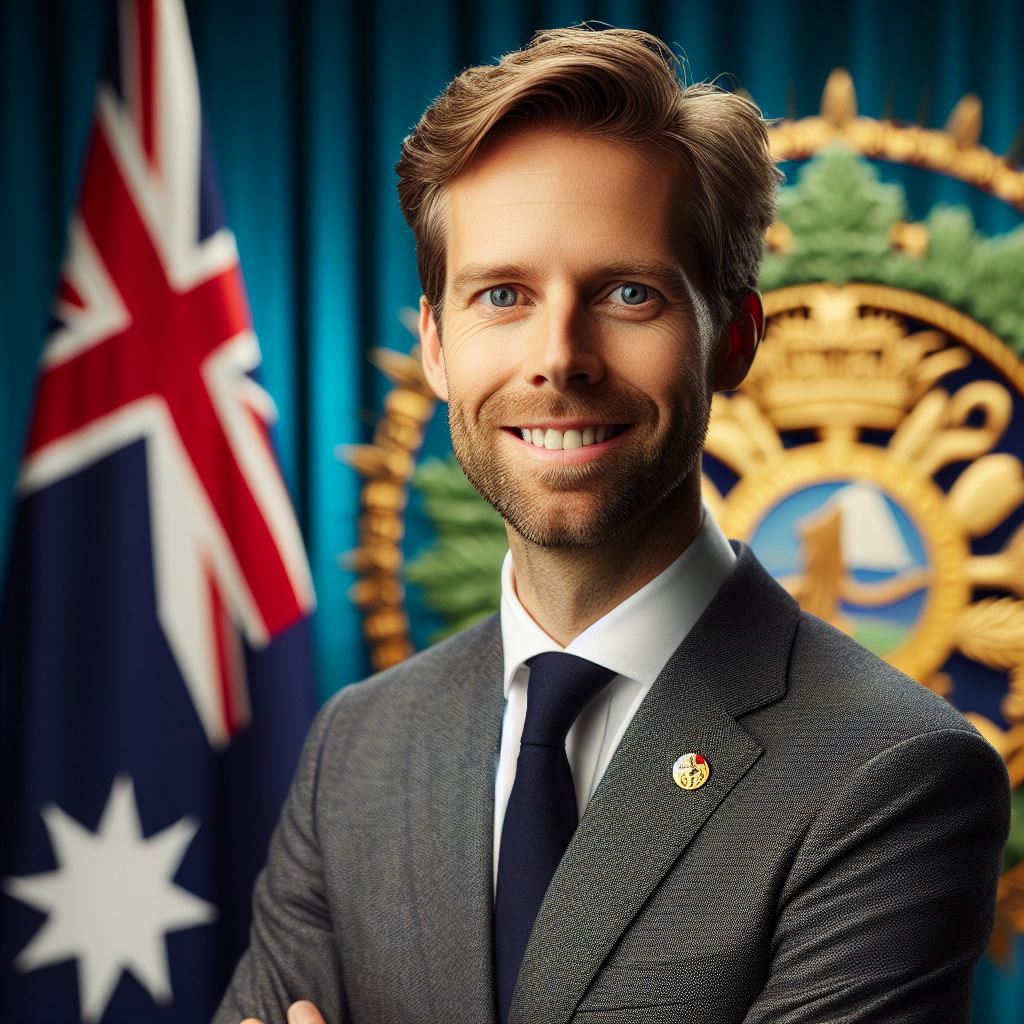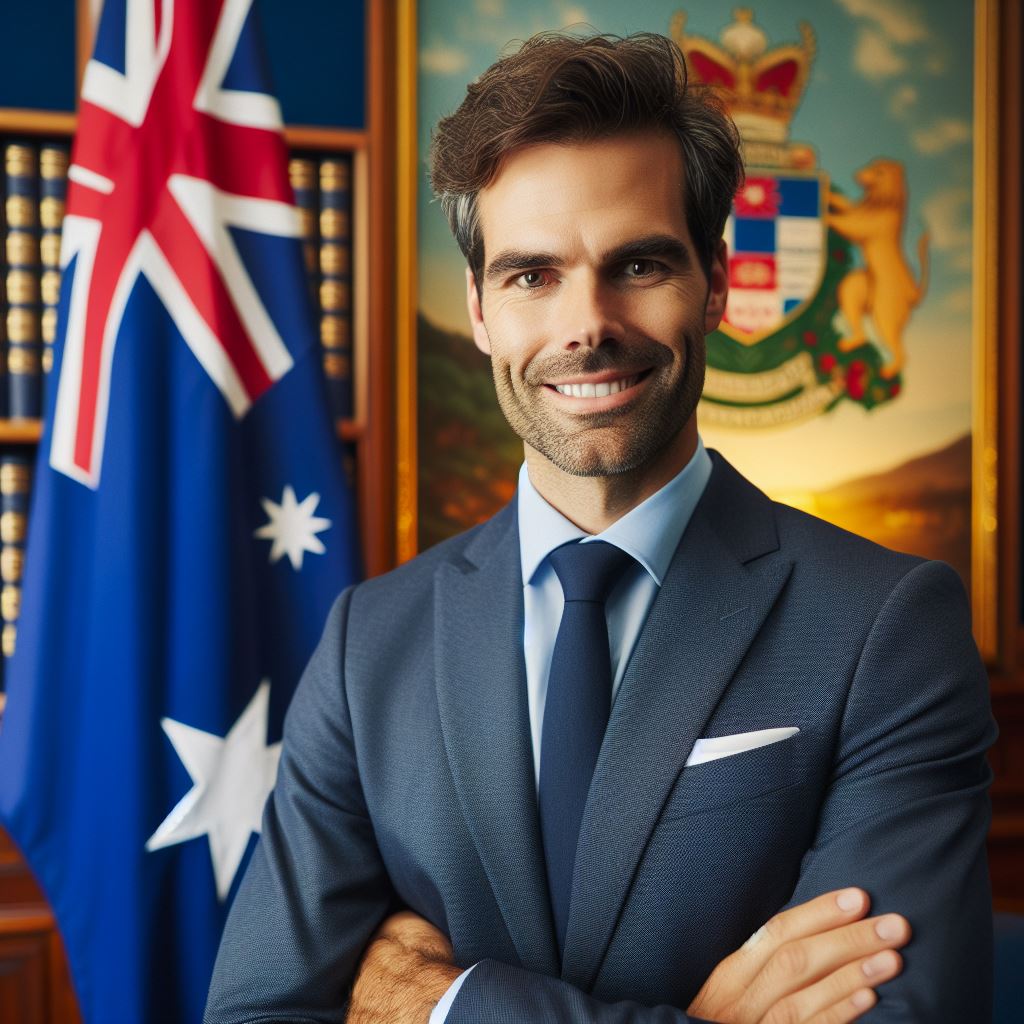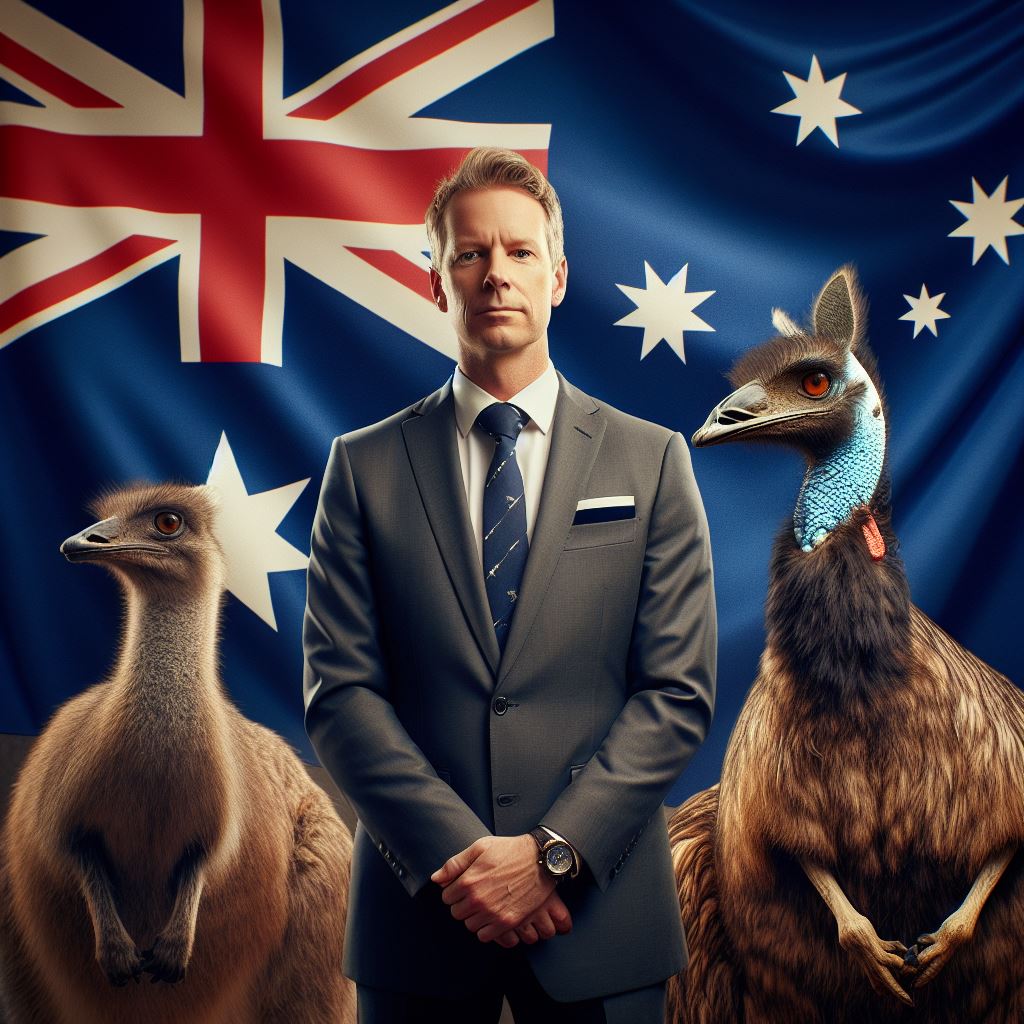Introduction
Embarking on a journey into the world of diplomacy in Australia unveils a multifaceted role that extends far beyond conventional perceptions.
Diplomats serve as the linchpins in the intricate web of international relations, wielding influence and navigating complexities with astute diplomatic finesse.
Diplomats in Australia function as the primary architects of the nation’s international engagements.
Their roles transcend ceremonial functions, encompassing negotiation, representation, and fostering collaborations.
They are the conduits through which Australia communicates, cooperates, and builds relationships on the global stage.
In the realm of international relations, diplomats play a pivotal role in shaping policies, resolving conflicts, and advancing national interests.
Their responsibilities span a spectrum, from representing Australia in diplomatic missions to crafting strategies that contribute to the nation’s global standing.
In a dynamic world, diplomats serve as key actors in maintaining peace, promoting economic ties, and addressing global challenges.
This blog post serves as a compass for individuals aspiring to venture into the realm of diplomacy in Australia.
Navigating the intricacies of diplomatic service requires a nuanced understanding of the profession’s demands and expectations.
By unraveling the layers of the diplomatic landscape, this post aims to guide and inspire those with aspirations of representing Australia on the international stage.
Through insights into the roles, challenges, and pathways, aspiring diplomats can glean valuable information to steer their journey toward a career in Australian diplomacy, contributing to the nation’s global influence and diplomatic prowess.
Educational Requirements
In shaping a successful career in international relations, the foundation laid during the formative years becomes paramount.
A bachelor’s degree in pertinent fields such as international relations, political science, or law serves as a cornerstone for a comprehensive understanding of the intricacies inherent in global affairs.
This educational grounding not only equips individuals with theoretical frameworks but also cultivates analytical skills crucial for navigating the complex landscape of international relations.
Importance of a Relevant Bachelor’s Degree
A bachelor’s degree in international relations, political science, or law is not merely a credential; it is a strategic investment in knowledge acquisition.
Such academic pursuits provide a deep understanding of geopolitical dynamics, diplomatic protocols, and legal frameworks, essential for individuals aspiring to contribute meaningfully to the field of international relations.
Significance of Language Skills
In the dynamic arena of international relations, effective communication is the linchpin of success.
Proficiency in foreign languages emerges as a key asset, enabling professionals to engage in nuanced dialogues, decipher diplomatic nuances, and foster international cooperation.
Language skills not only facilitate effective negotiation but also serve as a bridge to understanding diverse cultures and perspectives.
Value of Studying Abroad or Exchange Programs
Beyond traditional classroom education, the value of firsthand experience cannot be overstated.
Immersing oneself in different cultures through studying abroad or participating in exchange programs enhances adaptability and cultural intelligence.
Exposure to diverse geopolitical landscapes broadens perspectives, fostering a holistic approach that goes beyond theoretical frameworks.
In summary, the educational journey towards a career in international relations is multifaceted.
A relevant bachelor’s degree, language proficiency, and experiential learning through study abroad or exchange programs collectively form the robust educational foundation essential for navigating the complexities of global affairs with acumen and efficacy.
Read: Day in the Life of an Aussie Public Servant
Gaining Experience
Encourage volunteering opportunities in organizations that focus on diplomacy or international affairs
Volunteering allows individuals to gain hands-on experience and a deeper understanding of the field.
By working with these organizations, aspiring diplomats can develop valuable skills and expand their networks.
Volunteering also demonstrates a commitment to public service and a passion for international relations.
B. Discuss the significance of internships, such as those offered by the Department of Foreign Affairs and Trade (DFAT).
Internships provide practical experience and exposure to the daily responsibilities of a diplomat.
DFAT internships offer a unique opportunity to work within the Australian diplomatic service.
Interns can learn about diplomacy firsthand, develop crucial skills, and gain insight into foreign policy.
Benefits of networking within the diplomatic community and attending conferences, seminars, or workshops
Networking allows diplomats to establish connections, exchange knowledge, and collaborate on international issues.
Attending conferences, seminars, or workshops provides valuable learning opportunities and exposes individuals to diverse perspectives.
Your Personalized Career Strategy
Unlock your potential with tailored career consulting. Get clear, actionable steps designed for your success. Start now!
Get StartedBy actively participating in these events, diplomats can enhance their professional development and expand their contacts.
Networking and attending such events contribute to a diplomat’s growth and understanding of global affairs.
Gaining experience in the field of diplomacy is crucial for individuals aspiring to become diplomats.
Volunteering, internships, networking, and attending events all contribute to a well-rounded skillset.
These experiences not only enhance one’s understanding of diplomacy but also provide opportunities for personal and professional growth.
Through volunteering, aspiring diplomats can develop a practical understanding of the challenges and rewards of diplomacy.
Internships offer a chance to apply theoretical knowledge in a real-world diplomatic setting.
Networking within the diplomatic community helps build relationships and opens doors for future opportunities in the field.
Attending conferences, seminars, or workshops allows individuals to stay updated on the latest developments in international affairs.
These experiences also provide a platform to exchange ideas and learn from experts and fellow diplomats.
Gaining experience through these various channels strengthens one’s applications for future diplomatic roles.
Furthermore, it demonstrates a genuine commitment to diplomacy and a willingness to learn and adapt in a dynamic field.
In fact, gaining experience is an integral part of the path to becoming a diplomat in Australia.
By engaging in volunteering, internships, networking, and attending events, individuals can learn, grow, and establish themselves in the field of diplomacy.
Stand Out with a Resume That Gets Results
Your career is worth more than a generic template. Let us craft a resume and cover letter that showcase your unique strengths and help you secure that dream job.
Get HiredThese experiences not only enhance their understanding of global affairs but also contribute to their personal and professional development.
Aspiring diplomats should actively seek out these opportunities to stand out in a competitive field and prepare for their future careers.
Read: How Technology Aids Aussie Firefighters
Applying for Diplomatic Positions
Recruitment Process of the Australian Government’s Department of Foreign Affairs and Trade
The Australian Government’s Department of Foreign Affairs and Trade (DFAT) follows a rigorous recruitment process for diplomatic positions.
- Application: Interested candidates need to submit an online application through the DFAT website.
- Eligibility: Applicants must satisfy the eligibility criteria, including Australian citizenship and security clearance requirements.
- Screening: Applications are screened based on the requirements of the specific diplomatic position.
- Assessment: Shortlisted candidates undergo assessments, which may include written exams, interviews, and group exercises.
- Background Checks: Thorough background checks are conducted for candidates who successfully pass the assessments.
- Final Selection: The final selection is made based on merit, taking into account the candidate’s performance in all stages of the process.
Required Skills and Competencies for Diplomatic Positions
To excel in diplomatic positions, certain skills and competencies are essential:
- Communication: Diplomats must possess excellent verbal and written communication skills to convey information effectively.
- Negotiation: The ability to negotiate and find common ground in complex international discussions is crucial.
- Problem-Solving: Diplomats need to be adept at analyzing issues and finding creative solutions.
- Interpersonal Skills: Building relationships and maintaining professional networks is important for diplomatic success.
- Cultural Competence: Understanding and respecting different cultures is vital for navigating international environments.
Significance of Demonstrating Cultural Sensitivity and Adaptability
Demonstrating cultural sensitivity and adaptability is highly valued in diplomatic positions:
- Effective Communication: Being culturally sensitive allows diplomats to understand and communicate with people from diverse backgrounds successfully.
- Building Trust: Cultural adaptability helps build trust and rapport with foreign counterparts, fostering better diplomatic relationships.
- Resolving Conflicts: Cultural sensitivity enables diplomats to navigate cultural differences, reducing the potential for misunderstandings and conflicts.
- Representing Australia: Diplomats representing Australia overseas need to be respectful ambassadors of the country’s values and culture.
- International Collaboration: Cultural adaptability facilitates collaboration with international partners, promoting effective problem-solving and cooperation.
Read: The Future of Firefighting in Australia

Foreign Service Exams and Training
Importance of preparing for the Foreign Service Exam (FSE) offered by DFAT
Proper preparation is crucial for anyone aspiring to become a diplomat in Australia.
The Foreign Service Exam (FSE) offered by the Department of Foreign Affairs and Trade (DFAT) is the first hurdle one must overcome in this path.
It demands a thorough understanding of various subjects related to international relations, diplomacy, and current affairs.
Preparing for the FSE is of utmost importance as it tests an individual’s knowledge, analytical skills, and intellectual capabilities.
Success in the exam demonstrates the candidate’s potential to handle the challenges of diplomatic work and showcases their commitment to diplomacy as a career.
One must start preparing well in advance to ensure a strong foundation in relevant subjects.
Extensive reading, staying updated with global developments, and practicing mock exams are essential steps in this process.
Adequate time management and study plans should be established to cover all the necessary topics.
Components of the FSE: Written exams, interviews, and language assessments
The FSE consists of multiple components, each designed to assess different aspects of a candidate’s suitability for a diplomatic career.
These components include written exams, interviews, and language assessments.
The written exams evaluate candidates’ knowledge in areas such as international relations, politics, economics, and history.
Strong analytical and writing skills are essential to excel in these exams.
The questions may involve solving case studies, analyzing diplomatic scenarios, or drafting policy recommendations.
Qualified candidates are then shortlisted for the interview stage, which assesses their communication skills, problem-solving abilities, and diplomatic demeanor.
The interviews may involve panel discussions, group activities, and individual assessments to gauge a candidate’s suitability for diplomatic assignments.
Language assessments play a vital role in the FSE process, as diplomats need to communicate effectively in multiple languages.
Proficiency in one or more foreign languages is highly desirable and can significantly enhance a candidate’s competitiveness.
Training programs offered by DFAT to prepare diplomats for their roles and assignments
DFAT understands the importance of providing comprehensive training programs to ensure diplomats are fully equipped with the necessary skills and knowledge for their roles and assignments.
The training programs offered by DFAT cover a wide range of topics, including diplomatic protocol, negotiations, international law, cultural awareness, and public speaking.
These programs aim to enhance diplomats’ intercultural skills, diplomatic etiquette, and ability to represent Australia on the global stage.
In addition to the theoretical aspects of diplomacy, practical training is also provided.
This may include simulations of diplomatic negotiations, crisis management exercises, and real-world assignments in Australian embassies or consulates abroad.
Such training programs help diplomats develop a well-rounded skillset and navigate the intricacies of international diplomacy.
DFAT also emphasizes language training to enhance diplomats’ proficiency in foreign languages.
The ability to communicate effectively in the language of the host country or other key languages greatly facilitates diplomatic engagements and strengthens bilateral relationships.
In essence, the journey to becoming a diplomat in Australia involves preparing for the Foreign Service Exam (FSE) offered by DFAT.
Adequate preparation, including thorough knowledge of relevant subjects and strong analytical and language skills, is crucial to succeed in the FSE.
DFAT’s training programs further equip diplomats with the necessary skills and knowledge to excel in their roles and assignments.
Read: Firefighting Gear: What Do They Really Wear?
Learn More: The History of Firefighting in Australia
Career Progression and Development
Different Career Paths within the Diplomatic Field
- The diplomatic field offers various career paths such as political, economic, and consular.
- Political diplomats focus on international relations, negotiating treaties and representing their country’s interests.
- Economic diplomats work to promote trade and investment, analyze market trends, and strengthen economic ties between countries.
- Consular diplomats provide assistance to citizens abroad, including passport and visa services, and support during emergencies.
Opportunities for Advancement and Promotions within the Australian Diplomatic Service
- The Australian Diplomatic Service provides opportunities for career advancement and promotions.
- Diplomats can progress through various ranks, starting from entry-level positions and advancing to more senior roles.
- Promotions are based on merit, performance, experience, and expertise in specific areas.
- Achievement of higher ranks leads to increased responsibilities, broader policy influence, and the chance to represent Australia in more significant diplomatic positions.
Importance of Continuous Professional Development and staying updated with Global Affairs
- Continuous professional development is crucial for diplomats to enhance their skills and stay relevant in the ever-changing global landscape.
- Diplomats must stay updated on global affairs, including political, economic, and cultural developments.
- Ongoing training programs, workshops, and conferences provide diplomats with opportunities to expand their knowledge and network with peers.
- Developing expertise in specific regions or issues strengthens diplomatic capabilities and enables effective representation of Australia’s interests.
- Adapting to new technologies and understanding emerging global trends is essential for effective diplomacy in the modern era.
- Networking with diplomats from other countries and engaging in international collaborations fosters mutual understanding and promotes effective diplomacy.
In general, the diplomatic field offers various career paths such as political, economic, and consular. The Australian Diplomatic Service provides opportunities for career advancement and promotions based on merit and expertise.
Continuous professional development and staying updated with global affairs are crucial for diplomats to excel in their roles and effectively represent their country’s interests.
Challenges and Rewards of Being a Diplomat
Challenges Faced by Diplomats
- Long working hours: Diplomats often work long and unpredictable hours to handle diplomatic responsibilities efficiently.
- Frequent relocations: Diplomats are frequently required to relocate to different countries, adapting to new cultures and environments.
- Personal sacrifices: Diplomats may have to sacrifice personal relationships and stability due to their demanding careers.
- Security risks: Diplomats may face security threats and potentially dangerous situations in certain politically unstable regions.
- Emotional toll: Being away from family and friends for extended periods can take an emotional toll on diplomats.
Rewards of Being a Diplomat
- Making a global impact: Diplomats have the opportunity to make a tangible difference on a global scale, promoting peace and resolving conflicts.
- Cultural immersion: Diplomats get to experience and immerse themselves in diverse cultures, broadening their perspective and understanding.
- Professional growth: Being a diplomat allows for continuous personal and professional growth, acquiring skills in negotiation, communication, and diplomacy.
- Networking opportunities: Diplomats build extensive networks, fostering connections with influential individuals and organizations worldwide.
- Public recognition: Successful diplomats often gain public recognition and respect for their contributions to international relations.
Weighing the Pros and Cons
Becoming a diplomat necessitates weighing these factors and assessing personal aspirations and priorities. It requires a passion for international affairs, diplomacy, and the ability to handle challenges and uncertainties.
Transform Your LinkedIn for Maximum Impact
Elevate your professional brand with a LinkedIn profile that attracts recruiters, showcases your expertise, and maximizes opportunities. Stand out in your industry with a profile built for success.
Boost ProfileEmbarking on a diplomatic career requires careful consideration of its pros and cons:
Pros
- The chance to positively impact the world and tackle global issues.
- Experiencing rich and diverse cultures, broadening one’s horizons.
- Continuous personal and professional growth through diverse experiences.
Moreover, the continuous learning and growth opportunities that come with a diplomatic career are invaluable. Diplomats acquire essential skills like negotiation, communication, and conflict resolution, which can be applied to various future endeavors.
Building an extensive professional network opens doors to collaborations and partnerships that can shape the trajectory of one’s career.
Cons
- Long working hours and a demanding work schedule.
- Frequent relocations and the challenges of adapting to new environments.
- Sacrifices regarding personal relationships and stability.
The challenges faced by diplomats, such as long working hours, frequent relocations, personal sacrifices, and security risks, cannot be ignored.
These factors often put a strain on diplomatic professionals and their personal lives.
It requires resilience, adaptability, and a strong support system to thrive in such a demanding profession.
However, the rewards of being a diplomat can be immensely gratifying.
The ability to make a difference on a global scale, actively contributing to peace and stability, provides a sense of purpose and fulfillment.
Cultural immersion allows diplomats to develop a deep understanding of different societies and ways of life.
This firsthand exposure enhances cultural intelligence and facilitates effective diplomacy.
In review, becoming a diplomat involves significant challenges and rewards.
It is crucial for aspiring diplomats to carefully consider these aspects before pursuing this career path.
The dedication, determination, and passion to make a positive impact globally must outweigh the sacrifices and uncertainties that come with it.
Only by thoroughly evaluating the pros and cons can one make an informed decision about pursuing a diplomatic career.
Conclusion
In culmination, this blog post has meticulously unraveled the intricate facets of pursuing a career in diplomacy in Australia.
We traversed the essential qualifications, skills, and attributes that define successful diplomats in the dynamic global landscape.
We delved into the educational requisites, emphasizing the significance of a diverse skill set encompassing communication, cultural acumen, and strategic thinking.
The exploration extended to the pivotal role experience plays, highlighting its impact on shaping diplomats into adept negotiators and representatives.
For those inspired by the diplomatic calling, the journey begins now.
Acquiring relevant education and honing essential skills are the initial steps towards a rewarding diplomatic career.
The dynamic nature of global affairs demands proactive individuals who actively work towards their goals.
To facilitate this journey, we encourage aspiring diplomats to explore additional resources and further information.
A curated list of educational programs, workshops, and relevant reading materials can serve as invaluable tools in shaping a robust foundation for a diplomatic career.
Embarking on this profession requires continuous learning and adaptability, and these resources are stepping stones towards that endeavor.
In essence, the path to becoming a diplomat in Australia is marked by continuous learning, practical experiences, and a commitment to fostering international relations.
As we conclude, let this be an empowering call to action for those with diplomatic aspirations – seize the opportunity to cultivate the skills and knowledge necessary to make a meaningful impact on the world stage.
The journey towards becoming a diplomat is both challenging and rewarding, and with dedication, individuals can contribute significantly to shaping global conversations and fostering diplomatic relations.




